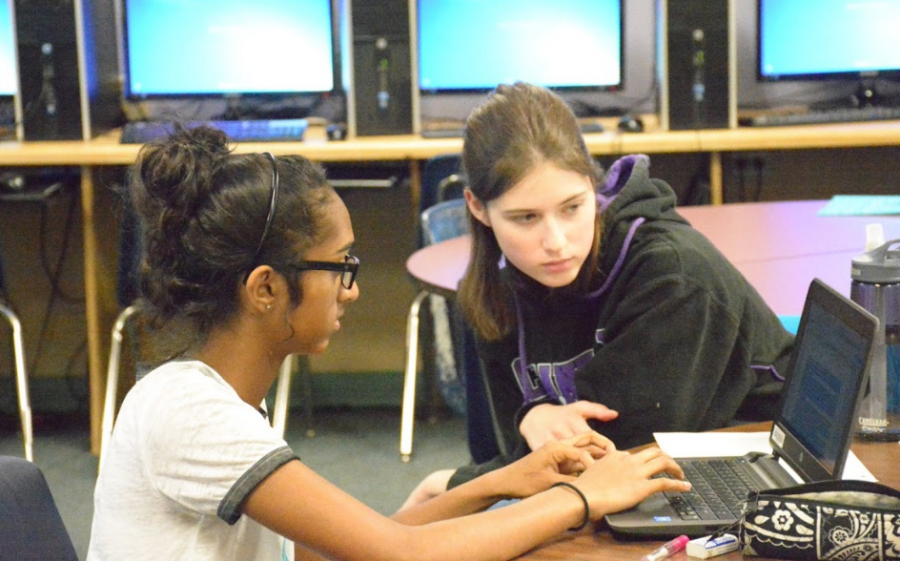National Mentoring Month: Raising awareness about the importance of volunteer tutoring
January 27, 2017
December has long since passed, allowing January to steal the limelight. Resolutions for the new year have been made (and possibly already broken), and everyone is eager for snow to sweep away as many school days as possible.
But January isn’t just about blizzards and resolutions; it is also known for being National Mentoring Month.
The purpose of National Mentoring Month is to draw attention to the need for volunteers to assist America’s youth in achieving their full potential. It was first enacted in a presidential proclamation by former president Barack Obama on Dec. 31, 2015.
In his proclamation, Obama said, “During National Mentoring Month, we honor all those who continuously strive to provide young people with the resources and support they need and deserve. Let us pledge our support for our nation’s young people, and let us honor those who give of themselves to uplift our next generation.”
As president of the English for Speakers of Other Languages (ESOL) peer tutoring club, senior Shin Won Cho has had many experiences mentoring.
“My form of mentoring is mostly through teaching, and I don’t know if that is what makes me a mentor,” Cho said. “Being a mentor isn’t really about me, it is about how I can help the student.”
Mentoring is no simple task, because oftentimes, not all students are willing to learn, or to accept what is being taught to them.
“I had one student who was smart but she simply did not want to learn,” Cho said. “She would just stare at one problem for 10 minutes [and declare] that it was too hard. That was difficult [for me].”
Despite the occasional stressful encounter, Cho feels gratitude from her students after tutoring them.
“My students and their parents do show their thanks,” Cho said. “I can really feel the love when I go to ESOL club and they tell me they love me. It’s said in a joking way, but I appreciate it.”
The school is full of peer tutors who, like Cho, show that it is not necessary to be an adult to make a difference in a student’s life. The Writing Center also provides students with opportunities to both give and receive assistance through mentorship. The tutors there all do their best to meet the needs of the students that come in for help during CT.
“Sometimes we all need help, and personally I find it easier to go to a peer and ask for assistance instead of going up to a teacher,” Nikki Lehman, one of the teacher sponsors for the Writing Center, said. “I am thrilled for the group of students that we have [in the Writing Center]. They’re the best writers in the school, and they give up their time to help their peers and they enjoy it.”
“I think that our tutors are really good because a lot of times, [they] are people that you know, and are other students,” junior and Writing Center board member Alayna Lee said. “I think that makes the tutoring experience personal and really connected, [which] helps with the learning process.”
As a mentor it is important to pay attention and care about a mentee, no matter how difficult or stressful teaching them may be.
“To be a mentor is to be a good listener and someone who is willing to guide and help a student,” Lehman said. “[A mentor] needs to find out what their mentee needs and work with them to figure everything out. The relationship between mentor and mentee is one that is very close, and I think that both [parties] benefit.”


